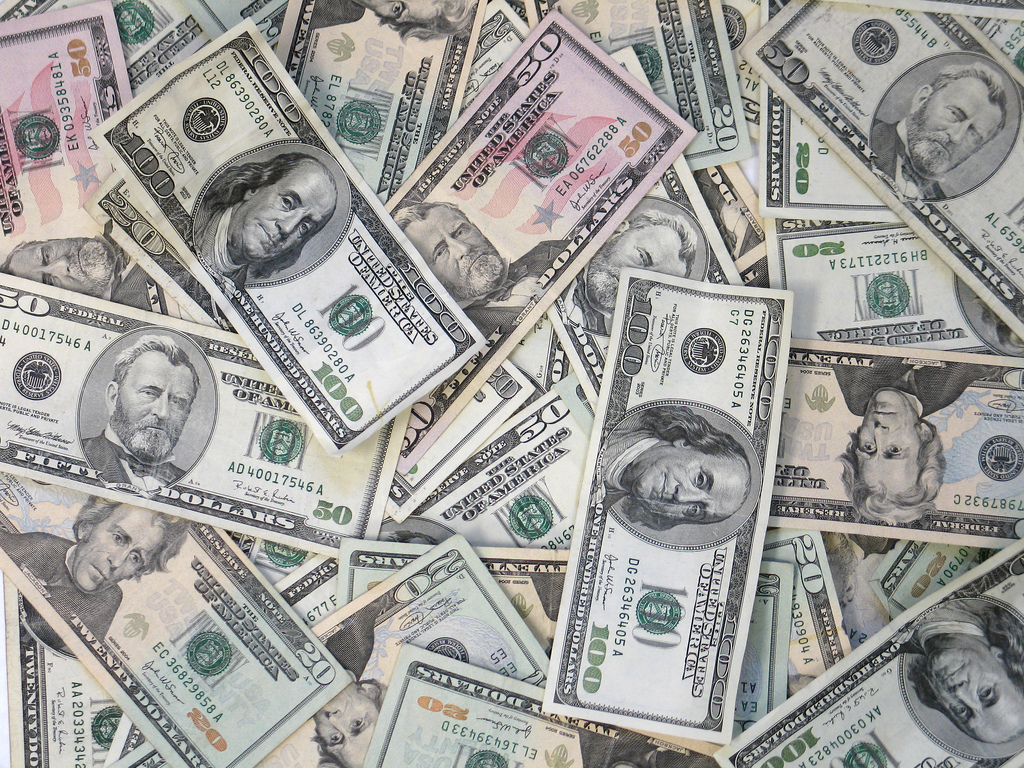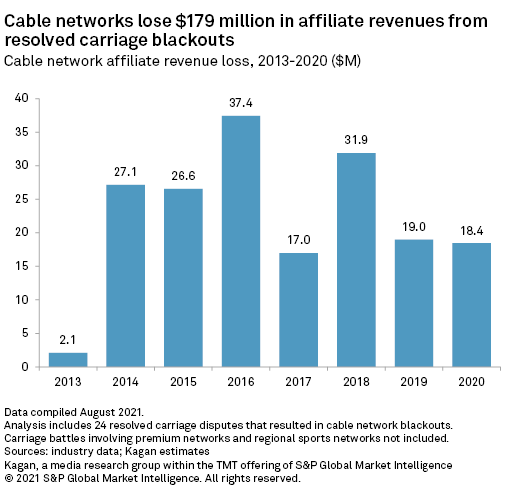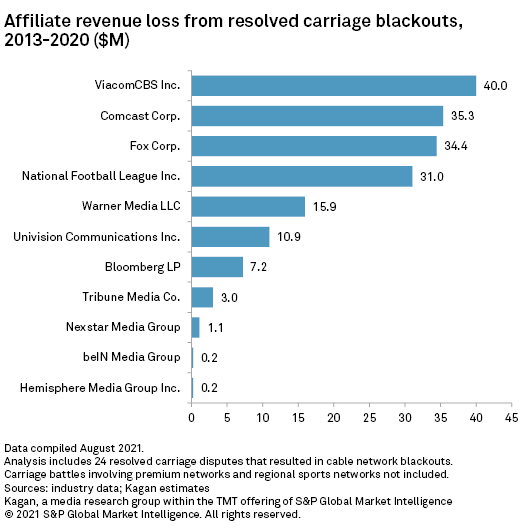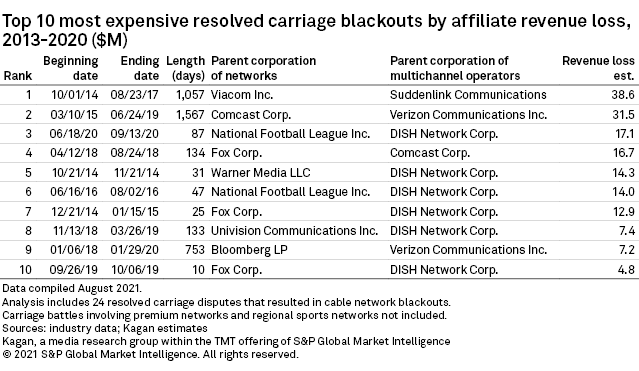Kagan: Carriage Blackouts Cost Networks $179.5 Million in Fees
Suddenlink’s nearly three-year blackout of Viacom channels tops list

The smarter way to stay on top of the multichannel video marketplace. Sign up below.
You are now subscribed
Your newsletter sign-up was successful
Blackouts of cable networks have cost programmers a total of $179.5 million in lost affiliate fees since 2013, according to a report by Kagan, a unit of S&P Global market intelligence, with more than $18 million of that hit occurring in 2020 alone.
According to Kagan, ViacomCBS has lost the most in affiliate fees over the past eight years — about $40.1 million — with most of that occurring between Oct. 1, 2014 and Aug. 23, 2017, the dates the programmers’ channels were dark to Suddenlink Communications systems. That 1,057-day blackout cost ViacomCBS about $38.6 million in lost affiliate fees, according to Kagan. Verizon Communications’ 1,567-day carriage dispute with Comcast’s then-owned The Weather Channel was longer — it lasted from March 10, 2015 to June 24, 2019 — but cost the programmer less (about $31.5 million) according to Kagan. Byron Allen’s Entertainment Studios purchased the Weather Channel in 2018.
In contrast, the shortest dispute was a two-day dark period for Univision Communications channels for Charter Communications customers. That dispute, between Feb. 1 and Feb. 3, 2017, cost the Spanish language programmer about $200,000 in lost affiliate fees, according to Kagan. The least costly dispute was the three-day blackout of CBS broadcast stations for Dish Network customers between Nov. 21 and Nov. 27, 2017, that cost the broadcaster about $100,000 in lost affiliate fees.
According to Kagan, 2016 was the worst year for blackout losses, with networks missing out on about $37.4 million in carriage fees. Networks lost out on about $31.9 million in fees in 2018, according to Kagan.
While $180 million seems like a big hit for programmers to take, it is minuscule compared to the amount distributors pay out for content. Kagan later estimated that distributors pay out about $40 billion per year to cable networks for programming. Over an eight-year period, that $180 million represents about 0.06% of the $320 billion distributors have shelled out for content.
Blackouts have become a common occurrence during carriage negotiations over the past few years, as networks usually time the expiration of their deals around major sporting or entertainment events. Distributors, who run the risk of losing subscribers to other providers the longer the disputes last, have in recent years taken a harder-line stance against carriage-fee increases. With the advent of streaming video, programmers have even more outlets for their programming.
The smarter way to stay on top of the multichannel video marketplace. Sign up below.
Even as the number of streaming services have grown with programmers creating direct-to-consumer products like Disney Plus, Discovery Plus, Peacock and the like, Kagan said that traditional distribution continues to be important.
“Cable-network owners risk affiliate revenue loss in hopes of producing a more favorable deal with traditional multichannel operators, which still serve more than half of the video subscription market in the U.S. and still supply billions of dollars in revenues for the cable network industry,” Kagan wrote. “Although traditional multichannel operators continue to lose subscribers over the years, cable networks will not abandon their cable, satellite and telco customers in the near term, as traditional cable is still a profitable business.”



Mike Farrell is senior content producer, finance for Multichannel News/B+C, covering finance, operations and M&A at cable operators and networks across the industry. He joined Multichannel News in September 1998 and has written about major deals and top players in the business ever since. He also writes the On The Money blog, offering deeper dives into a wide variety of topics including, retransmission consent, regional sports networks,and streaming video. In 2015 he won the Jesse H. Neal Award for Best Profile, an in-depth look at the Syfy Network’s Sharknado franchise and its impact on the industry.

